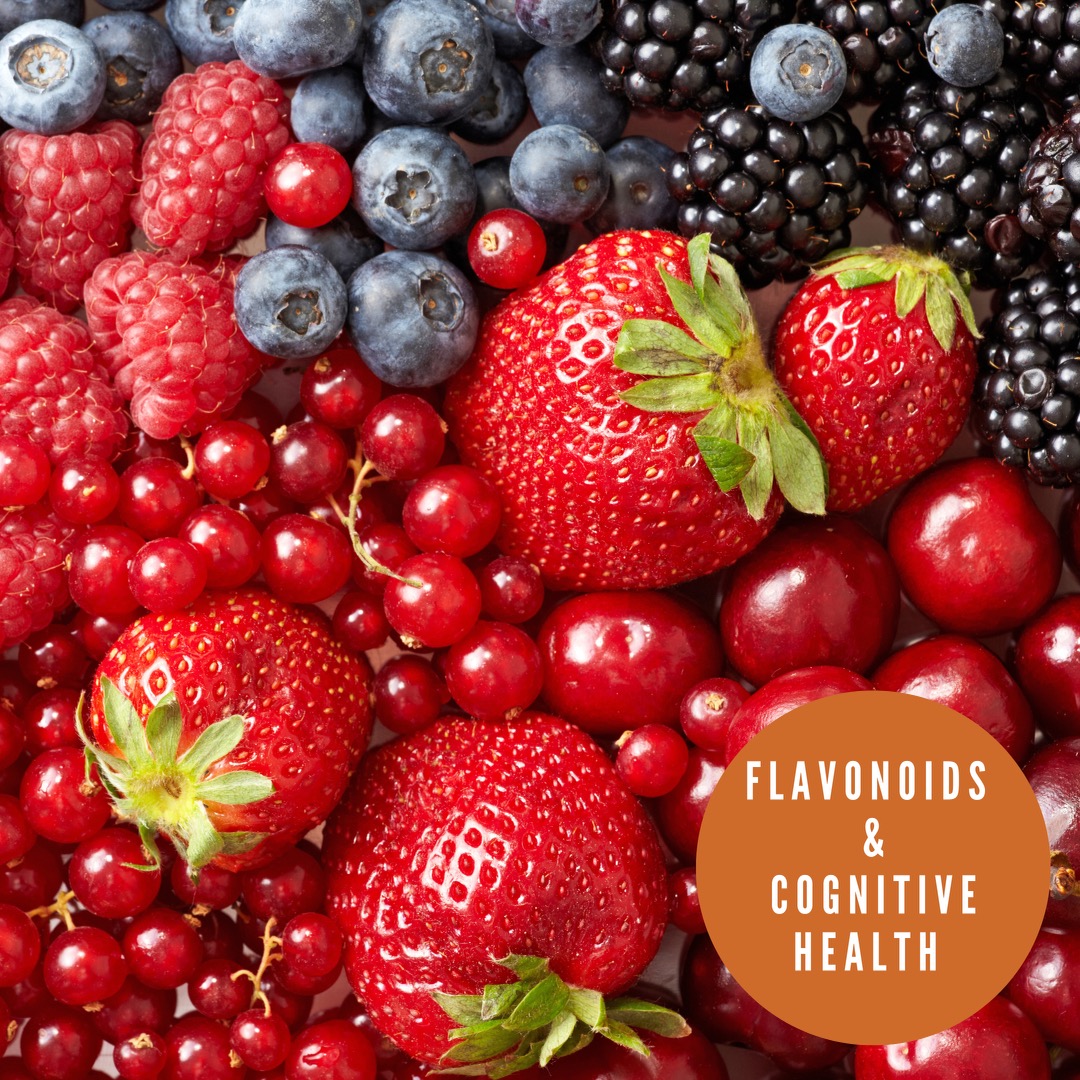I think it’s fair to say, we all want to stay physically fit as we age and along with this, keep our mind sharp and ward off cognitive decline.
Signs of cognitive decline can include forgetting appointments, dates, recent conversations, lacking sense of direction, struggling to make decisions or feeling overwhelmed by making decisions.
Thankfully, the foods we choose to eat can have an impact on brain health and specifically a group of chemical compounds called flavonoids. If you aren’t aware already, flavonoids are found within plant foods and exert beneficial and anti-inflammatory effects, protective of not only brain health but they also help to reduce chronic disease risk.
A recent study has looked at the association between long-term dietary flavonoid intake and subjective cognitive decline.
The study involved 49,493 women with an average age of 48 at the start of the study and 27,842 men with an average age of 51.
Over 20 years, the researchers followed their daily intake of flavonoids and subjective symptoms of cognitive decline.
Results of the study showed:
- People with the highest intake of flavonoids consumed 600mg per day.
- People with the lowest intake of flavonoids consumed 150mg per day.
- People in highest group had 20% less risk of self-reported cognitive decline than the people in the lowest group.
Flavones, a type of flavonoid, which are found in yellow and orange fruits and vegetables had the strongest protective qualities, namely 38% reduction in risk of cognitive decline.
Similarly, anthocyanins, another type of flavonoid, found in blueberries, blackberries and cherries, was associated with a 24% reduced risk of cognitive decline.
A limitation of this study is that it was based on self-report by participants. However, it’s still good information and consuming these foods can only benefit health!
Which specific foods contain flavonoids?
As mentioned, flavonoids are chemical compounds found within plants which exert beneficial antioxidant and anti-inflammatory effects.
The main subgroups of flavonoids and food sources include:
- flavones: celery, parsley, hot peppers, mint and chamomile, dandelion, carrots, olive oil, peppermint, rosemary, parsley, thyme, dill, oregano.
- Flavonols: onions, leeks, brussels sprouts, kale, broccoli, herbal tea, tomatoes, beans and apples, cucumber, green beans, sprouts, squash.
- Flavanols: teas, cocoa, grapes, applies, berries, red wine, banana, peaches and pears.
- Flavanones: citrus fruits – lemon, lime, grapefruit, orange.
- Isoflavones: soy products, flaxseeds and legumes.
- Anthocyanins: berries, pomegranate, plums, cranberries, black currants, red and purple grapes.
To give an idea of how many mg of flavonoids are in food please see approx. values below:
Pear (unpeeled): 70mg per 100g fresh fruit
Red apple (unpeeled): 49mg per 100g fresh fruit
Green apple (unpeeled): 40mg per 100g fresh fruit
Plum: 136mg per 100g fresh weight
Peach: 15mg per 100g fresh weight
Blackberries: 55.5mg per 100g fresh weight
Raspberries: 27mg per 100g fresh weight
Strawberries: 70mg per 100g fresh weight
Sour cherries: 139mg per 100g fresh weight
Sweet cherries: 20mg per 100g fresh weight
Blueberries: 190mg per 100g fresh weight
Black grapes: 77mg per 100g fresh weight
Parsley: 27mg per 100g fresh weight
Red pepper: 14mg per 100g fresh weight
Lettuce: 97mg per 100g fresh weight
Brussels sprout: 33mg per 100g fresh weight
Broccoli: 19mg per 100g fresh weight
Red cabbage: 24mg per fresh weight
Tips on how to easily add more flavonoids to your diet
- Flavour dishes with herbs
- Add herbs to meals when cooking and dips
- Start your stay with a serve of fruit
- Grate pear and/or apple into yoghurt as a snack or add to pancake mix
- Make a berry compote and have with yoghurt for snacks or dessert
- Use onions and leeks as the base of dishes
- Drink more tea! Try iced tea come summer
- Have a few meat free meals each week and use legumes and/or tofu instead of meat
- Add berries to salads
- make tabouli with parsley as a lunch salad or dinner side
- avoid peeling apples and pears
